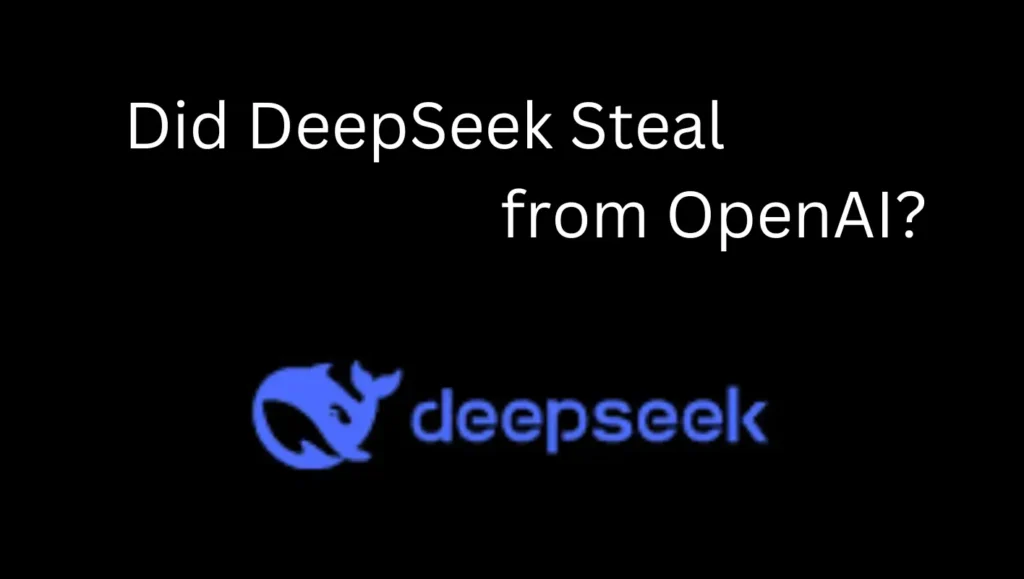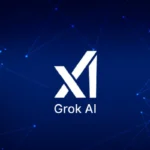A new controversy has come up in the battle for artificial intelligence dominance: Did DeepSeek steal from OpenAI? As DeepSeek quickly gained attention for its advanced AI capabilities, many in the AI community began asking if it had used OpenAI’s proprietary data or methods to reach its success. This debate raises ethical concerns regarding AI development, data usage, and competition among tech companies.
DeepSeek’s Growth and OpenAI’s Dominance
DeepSeek, an AI model from China, has become known as a strong competitor to OpenAI’s ChatGPT. People have praised its performance for providing high-quality responses, strong reasoning skills, and impressive creative writing, all while being free to use—quite different from OpenAI’s subscription model.
DeepSeek’s growth caused some doubts. Some analysts think that DeepSeek has possibly trained its model with data generated by OpenAI. This practice is called model distillation or reinforcement learning with AI-generated feedback (RLHF). If this is true, it could affect OpenAI’s edge in the market and the broader AI industry.
AI Training and Its Ethical Concerns
AI models need a lot of training data, which is usually taken from the open internet. The ways to collect and improve this data can be a topic of debate. Here are some ways AI companies could gain an advantage—both in ethical ways and in unethical ways:
● Scraping publicly available data: Scraping data that is publicly available is a common practice. However, it brings up concerns about copyright and consent.
● Using AI-generated outputs from competitors – If DeepSeek used OpenAI’s responses to train its own model, it would essentially be relying on OpenAI’s intellectual property.
● Reverse engineering proprietary techniques – Some think that DeepSeek may have looked into OpenAI’s model designs and fine-tuning methods to achieve similar success.
Did DeepSeek Violate Any Rules?
OpenAI hasn’t publicly claimed that DeepSeek did anything wrong, but some AI researchers think that DeepSeek would have used reinforcement learning methods, possibly training its own model with responses from ChatGPT. But even if that’s true, is it against the law?
The development of AI operates within a complex area of intellectual property law. OpenAI trained its models using a large amount of publicly available internet data, which may include copyrighted or proprietary content. Should DeepSeek face penalties for possibly using OpenAI’s outputs, if OpenAI has the right to do this legally?
Final Thoughts: Is There Cause for Concern for OpenAI?
Even if DeepSeek used data generated by OpenAI, OpenAI still has significant advantages: large computing power, strong brand recognition, and partnerships with enterprises.
As AI models become easier to access, businesses should concentrate on practical AI uses instead of which model is the best. DeepSeek AI training could be a big game changer today, but the true winners will be those who use AI in the most effective ways.
So, did DeepSeek steal from OpenAI? The jury is still out. But one thing is certain: the AI battle is far from over.
Frequently Asked Questions
What is the controversy between DeepSeek and OpenAI?
There is a discussion about whether DeepSeek, a Chinese AI company, used OpenAI’s proprietary data or methods to train its models. This brings up concerns about intellectual property and the ethical development of AI.
Can DeepSeek legally use OpenAI’s generated data to train its models?
This problem becomes complex because of intellectual property laws and the use of data that is available to the public. It’s unclear whether or not DeepSeek violated any laws, but there are concerns about the ethics of using data generated by OpenAI.
Did DeepSeek violate any laws in its development?
OpenAI has not officially stated that DeepSeek has done anything wrong. AI researchers are debating whether DeepSeek may have used OpenAI’s model outputs or techniques, which some could consider as unethical.
What is model distillation, and how can it connect to DeepSeek?
Model distillation is an approach in which one AI model learns from the outputs of another model. Some think that DeepSeek may have used data created by OpenAI’s models to train its own.
What ethical concerns come up with AI training methods?
AI businesses frequently use huge databases from the internet, which may contain copyrighted material. Concerns begin when AI models use competitor’s outputs, posing issues of consent and intellectual property.












